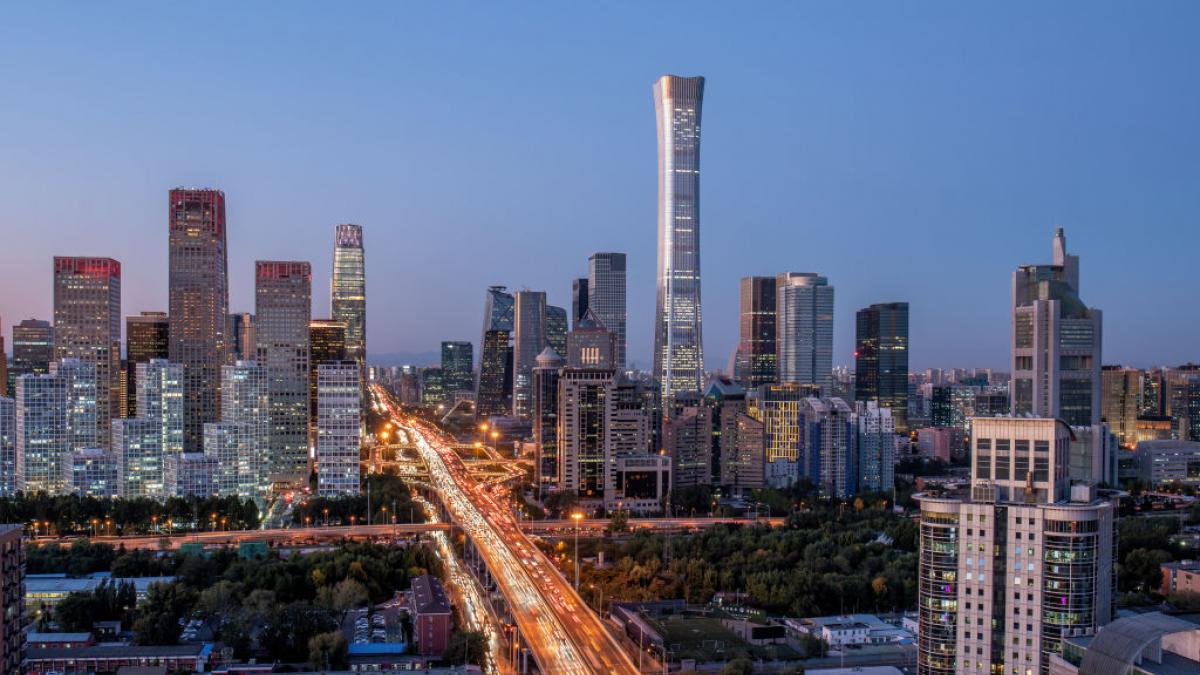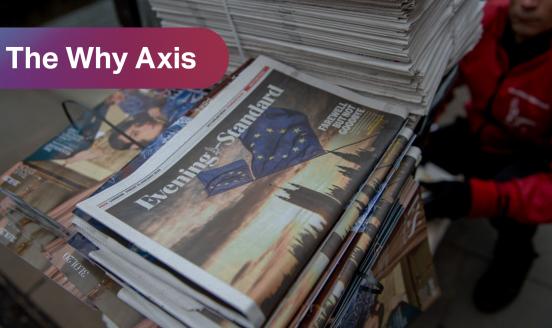Is the private sector retreating in China? Not among its largest companies
China’s largest private-sector companies are expanding more quickly than state-owned enterprises (SOEs).

China’s wave of regulatory restrictions on private companies in 2021 is seen as reflecting a decisive turn toward a new economic regime in which state-owned enterprises play a greater role. But is China’s private sector truly being crushed? A study we carried out tells a different story: China’s largest private-sector companies are expanding more quickly than state-owned enterprises (SOEs).
Our paper relies on collection and analysis of over a decade of data on the changing shares of the state sector and the private sector among China’s largest companies. We show that China’s private sector has grown significantly both in absolute terms and as a proportion of the country’s largest companies, measured by revenue or (for listed companies) by market value, from a very low level when Xi Jinping was confirmed as the next top leader in 2010.
Of course, it should be borne in mind that the distinction between state and private sector is not the only structural divide in China’s corporate landscape. The Communist Party has attempted to develop its presence in the corporate world through various means, including by encouraging the development of party cells in private companies. But equity ownership structures matter. China’s private-sector companies are focused on profit maximisation and value creation in ways SOEs are not.
Thus, the Chinese idiom ‘state advances, private sector retreats’ (国进民退), which has been used widely to describe China’s economic trends, does not represent the main picture of what has been going on under President Xi Jinping in China’s business world, even in the most recent years.
The rapid rise of private sector among China’s largest companies
Unlike in most countries, the shares of many of China’s largest companies are not listed on a stock exchange. That is the case for the state sector and the private sector, even though many unlisted SOEs conduct much of their activity through majority-owned listed subsidiaries. We therefore examined both listed and unlisted companies, using two partly overlapping rankings of China’s largest companies.
The first sample is ranked by revenue, a proxy for a company’s activity. The data derive from the research conducted by Fortune magazine for its yearly Fortune Global 500 ranking, from which we extracted the companies from mainland China. This category has grown fast, from 15 companies in the 2005 ranking (based on 2004 revenue) to 130 in the 2021 ranking (based on 2020 revenue). The aggregate revenue of these companies grew from $2.8 trillion in 2010 to $8.8 trillion in 2020. Their aggregate headcount was 21 million in 2020, slightly under a twentieth of China’s total urban employment, a ratio that has been fairly stable over the past decade.
The paper’s second sample is limited to mainland Chinese companies whose shares are listed on a stock exchange, typically in Shanghai, Shenzhen, Hong Kong and/or New York, including companies such as Alibaba and Tencent that have adopted variable-interest-entity arrangements to circumvent China’s onerous regulations on foreign ownership in certain sectors such as internet services. For this category of companies, we constructed yearly Top 100 rankings from 2010 through 2021, based on year-end market capitalisation. Their aggregate headcount and revenue levels are significantly lower than those of the first sample, as would be expected since the category does not include some gigantic yet unprofitable unlisted SOEs, and conversely includes some high-growth young companies that hold much promise but are still relatively small. Together, these largest 100 listed companies represent about two-fifths of the entire market capitalisation of all China’s listed companies.
Ownership of these largest Chinese companies involves a range of investor categories. These include, among others:
- The Chinese state at central and local (eg provincial or municipal) levels, directly through government ministries or departments (such as the Ministry of Finance) or indirectly through specialised agencies (such as the State-owned Assets Supervision and Administration Commission, or SASAC, at central and local levels), state investment entities (such as Central Huijin Company, China Securities Finance Corporation and the National Integrated Circuit Industry Fund), or SOEs that mix commercial and investment activities (such as China National Tobacco Corporation);
- Founders and/or their relatives, management and corporate pension funds of private-sector companies;
- Private-sector companies like Alibaba and Tencent acting as venture capitalists;
- Foreign investors, eg diversified entities like Japan’s Softbank or Thailand’s Charoen Pokphand, and global asset managers like BlackRock or Canadian pension funds.
Our study includes case studies to illustrate the diversity and complexity of ownership patterns of some prominent Chinese companies, such as Ping An of China and ZTE. It also has two appendices detailing Chinese companies in the 2021 Fortune Global 500 ranking, and Top 100 listed Chinese companies as of end-2021, with indications of each company’s most significant shareholders.
For the purposes of the study, we defined the private sector as those companies, labelled ‘non-public enterprises’ in line with Chinese practice, in which state entities hold less than 10% of equity capital. Within the state sector, we distinguished between SOEs, in which the state owns a majority stake, and ‘mixed-ownership enterprises’, in which the state holds only a minority position of between 10% and 50%.
These definitions refer to equity ownership, leaving open other, less easily quantifiable notions. The Chinese Communist Party is clearly striving to develop its influence over China’s private sector, even though that influence remains considerably less direct than over SOEs. It would be an exaggeration, however, to say that China is unique in this respect. Government influence occurs with the private sector in Europe, Japan, South Korea, Taiwan and other advanced economies – even occasionally in the United States. Such influence is surely more pervasive in China, but none of that erases the importance of the divide between the state sector and the private sector. Ownership matters greatly for economic development outcomes, even under pervasive Party control of political matters. The advance of the private sector, which our study documents, is thus of structural significance for China.
With these definitions in mind, Figures 1 and 2 illustrate the rise of the private sector among China’s largest companies, measured respectively by revenue (all companies) or market value (listed companies). As is clear in Figure 1, SOEs still dominate by revenue among the largest companies, much more so than in the Chinese economy as a whole. But the share of the private sector has been steadily rising, from zero in the mid-2000s to 19% of the total ($1.7 trillion out of $8.8 trillion) in Fortune’s 2021 ranking.
As for the market value of the largest listed firms (Figure 2), the private sector represented merely 8% in 2010, but soared above 50% in 2020, and retreated only slightly in 2021, to 48%. Thus, the state crackdown in 2021 on certain private-sector-dominated industries, such as internet platforms and after-school tutoring, has had some impact, but has not reversed the prior advance of the private sector using the market value indicator.
Figure 3 shows similar trends for other metrics, based on the same samples of companies.
Not privatisation, but displacement of SOEs by better-performing private firms
The advance of the private sector among China’s largest companies does not appear to result from long-term planning or top-down decisions, but rather from bottom-up dynamics. Privatisation has been virtually non-existent among China’s largest companies, and neither has the state gone out of its way to give the private sector a comparative advantage. On the contrary, President Xi Jinping declared in 2016 that SOEs must become “stronger, better and bigger”. What explains the observed trend is that private-sector companies have been more dynamic and profitable than those in the state sector. What China scholar Nicholas R. Lardy described as the “displacement of SOEs” by private-sector companies has occurred despite a policy environment that clearly does not favour them.
The emergence of private-sector champions reflects the spectacular growth of internet content and e-commerce platforms, and of other areas where the private sector is strong, including manufacturing (eg electronics, electric cars, batteries, steel, chemicals), consumer products and services, pharmaceuticals and life-science companies. Some of the largest Chinese property developers are also private, though the real-estate sector is currently ailing with the shakiness of China’s property market and the failure of Evergrande among other developers. By contrast, financial services, telecoms, energy and transportation remain dominated by SOEs. But the growth of large companies in those state-dominated industries has been comparatively less rapid. In terms of market value, some large companies in telecoms and energy, for example, have even declined in absolute terms.
Of course, the structural trend of private-sector advance, which has characterised the decade of China’s development under President Xi Jinping so far, may not be a guide to what will happen next. But claims of a pivot back to state-sector dominance have been made multiple times before, with reference to policy shifts in 1989-1990, 2003, the mid-2000s, 2008, 2009, 2010, 2012, 2017, 2019 and early 2020. Meanwhile, China’s private sector has kept advancing. There is no compelling reason to think that this time is different.
Recommended citation:
Huang, T. and N. Véron (2022) ‘Is the private sector retreating in China? Not among its largest companies’, Bruegel Blog, 5 April
The authors gratefully acknowledge excellent research assistance by David Xu at the Peterson Institute for International Economics.



